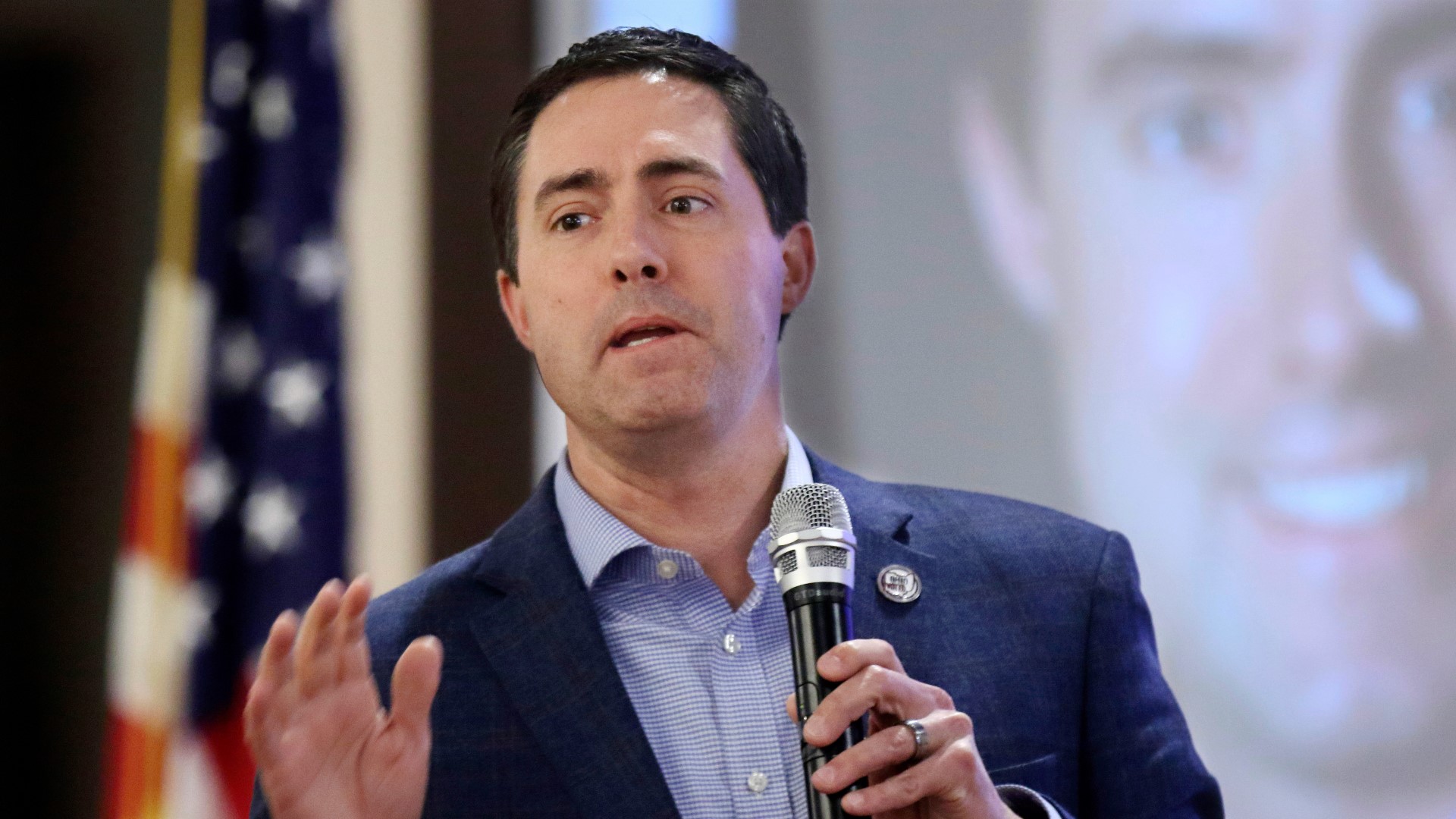COLUMBUS, Ohio — The Libertarian Party of Ohio has filed a complaint with federal officials alleging Secretary of State Frank LaRose’s Issue 1 advocacy violates the Hatch Act.
The law prohibits employees and certain officeholders from using their authority to influence the outcome of an election.
The complaint argues that because LaRose’s office administers federal election funds, his campaign activity is subject to Hatch Act provisions.
“In sum,” it reads, “Secretary LaRose, who administers federal funds for elections supplied to his Office under federal law, has used and is using his office and official authority to influence, interfere with and affect an Ohio election scheduled on August 8, 2023.”
That election will determine whether future constitutional amendments should clear a 60% supermajority for passage. LaRose did not respond to requests for comment.
The prohibition on federal employees using their position to gain electoral advantage has been around since the Great Depression. Congress quickly extended the Act to include state and local officials who derive funding from the federal government.
The law’s reach is broad and has tripped up federal officials from both parties. During the Obama administration, for instance, Health and Human Services Secretary Kathleen Sebelius ran afoul of its provisions. Still, until the Trump administration, violations were relatively rare. A federal report determined 13 Trump officials repeatedly violated the law. Kellyanne Conway’s actions were so frequent and brazen that the agency overseeing investigations recommended Trump dismiss her.
More recently, President Biden’s press secretary got a warning for criticizing “MAGA Republicans” in the lead-up to the 2022 election.
Critics of the Hatch Act argue its prohibitions punish public employees at the state or local level by barring them from seeking public office.
Penalties for violating the act aren’t criminal. Officials could face a reprimand, suspension or removal as well as a fine of up to $1000. They can also be blocked from future federal employment for up to five years.
Attorney Mark Brown prepared the complaint and addressed the U.S. Office of Special Counsel. The allegations hinge on federal elections funding under the Help America Vote Act, or HAVA. LaRose’s office manages those dollars, and the complaint points to a press release describing how the office disbursed that money. The state tapped HAVA dollars to help with cybersecurity, accessibility for voters with disabilities and COVID-19 preparedness.
Because LaRose administers that funding, the complaint argues, he falls within the Hatch Act definition of a state officer or employee.
Brown highlights LaRose’s use of Twitter to share updates about his office’s official actions and voting information as well as to advocate in favor of Issue 1. In particular, the complaint highlights two tweets sharing a video of a televised debate in which the secretary, in his official capacity, argued in favor of Issue 1. Both tweets carry the explicit call to action “Vote yes on Issue 1.”
“Using (Twitter) as Ohio’s Secretary of State to advance his support for Issue 1 thus can only be understood as his using his official authority to support a particular side in the August 8, 2023 election,” Brown argued.
He goes on to argue that LaRose’s tweets demonstrate the intermingling of official and campaign activity. But they also hint at a much more extensive effort to sway voters. LaRose’s “many appearances and meetings to trumpet Issue 1 pile on to demonstrate his ‘well-established pattern’ to get his message in support of Issue 1 across to voters,” Brown wrote.
Tuesday, LaRose tweeted a video from a campaign event in Cuyahoga County. He described it as the 65th one in which he’s participated.
Brown also argued the First Amendment doesn’t protect LaRose because it only covers speech in his personal or private capacity.
Neither LaRose’s office nor his U.S. Senate campaign responded to requests for comment about the complaint. However, shortly after the Issue 1 debate referenced in the Libertarian Party’s filing, LaRose spoke with reporters and defended his advocacy.
“This is something that I think is vitally important,” LaRose said. “I think a yes vote on Issue 1 is one of the most consequential votes that an Ohioan can cast, maybe this decade, maybe in their lifetime.”
It’s a reversal for an elections chief who previously refused to make any endorsements at all while running state elections. Shortly after LaRose announced his 2024 U.S. Senate bid — an election that he will oversee — LaRose endorsed former president Donald Trump.

